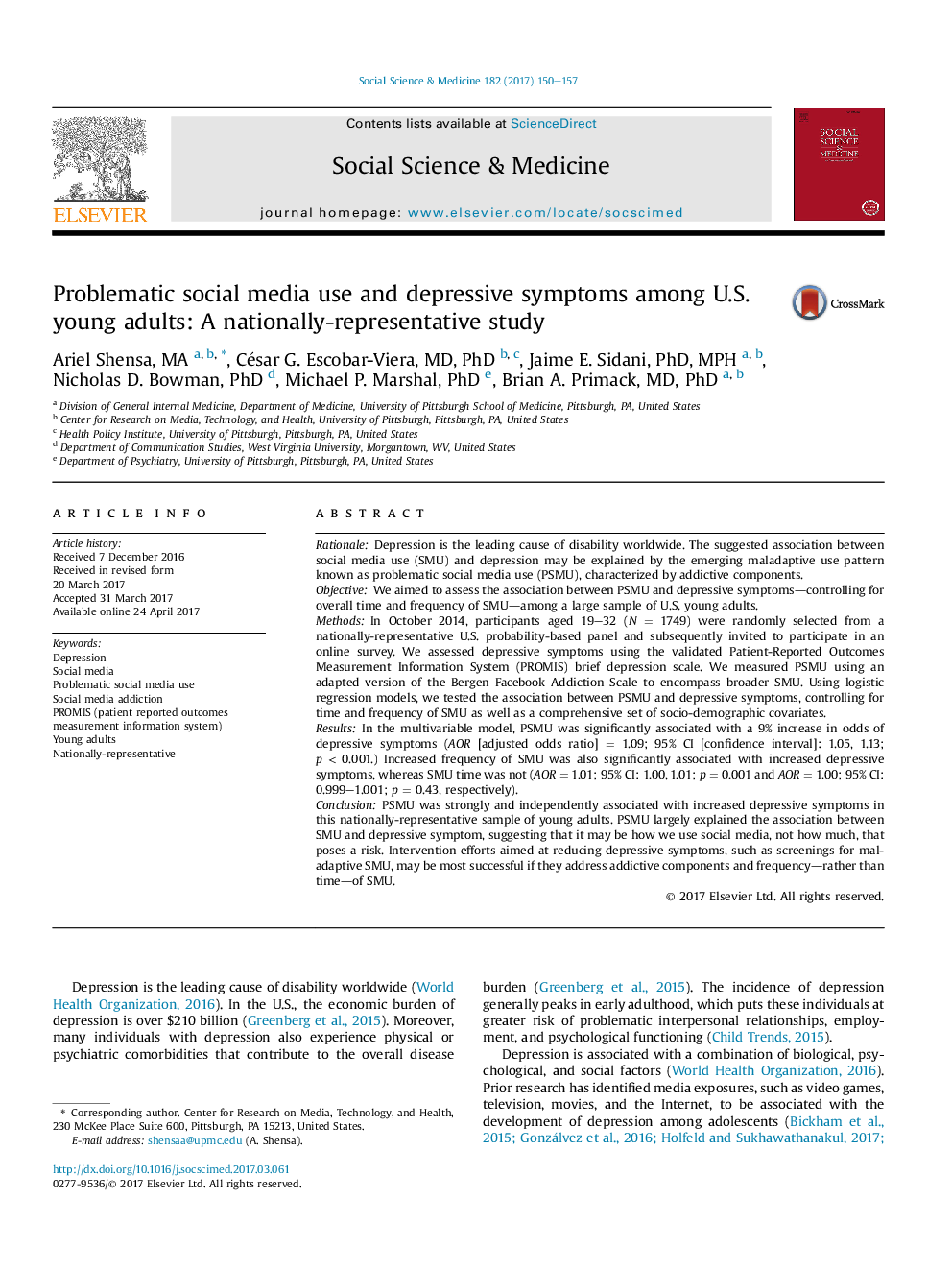| کد مقاله | کد نشریه | سال انتشار | مقاله انگلیسی | نسخه تمام متن |
|---|---|---|---|---|
| 5046541 | 1475987 | 2017 | 8 صفحه PDF | دانلود رایگان |
- 44% of this U.S. young adult sample reported problematic social media use (PSMU).
- PSMU is strongly and independently associated with depressive symptoms.
- Frequency of social media use may be a distinct behavioral component of PSMU.
- Future research using longitudinal designs is needed to establish directionality.
RationaleDepression is the leading cause of disability worldwide. The suggested association between social media use (SMU) and depression may be explained by the emerging maladaptive use pattern known as problematic social media use (PSMU), characterized by addictive components.ObjectiveWe aimed to assess the association between PSMU and depressive symptoms-controlling for overall time and frequency of SMU-among a large sample of U.S. young adults.MethodsIn October 2014, participants aged 19-32 (N = 1749) were randomly selected from a nationally-representative U.S. probability-based panel and subsequently invited to participate in an online survey. We assessed depressive symptoms using the validated Patient-Reported Outcomes Measurement Information System (PROMIS) brief depression scale. We measured PSMU using an adapted version of the Bergen Facebook Addiction Scale to encompass broader SMU. Using logistic regression models, we tested the association between PSMU and depressive symptoms, controlling for time and frequency of SMU as well as a comprehensive set of socio-demographic covariates.ResultsIn the multivariable model, PSMU was significantly associated with a 9% increase in odds of depressive symptoms (AOR [adjusted odds ratio] = 1.09; 95% CI [confidence interval]: 1.05, 1.13; p < 0.001.) Increased frequency of SMU was also significantly associated with increased depressive symptoms, whereas SMU time was not (AOR = 1.01; 95% CI: 1.00, 1.01; p = 0.001 and AOR = 1.00; 95% CI: 0.999-1.001; p = 0.43, respectively).ConclusionPSMU was strongly and independently associated with increased depressive symptoms in this nationally-representative sample of young adults. PSMU largely explained the association between SMU and depressive symptom, suggesting that it may be how we use social media, not how much, that poses a risk. Intervention efforts aimed at reducing depressive symptoms, such as screenings for maladaptive SMU, may be most successful if they address addictive components and frequency-rather than time-of SMU.
Journal: Social Science & Medicine - Volume 182, June 2017, Pages 150-157
